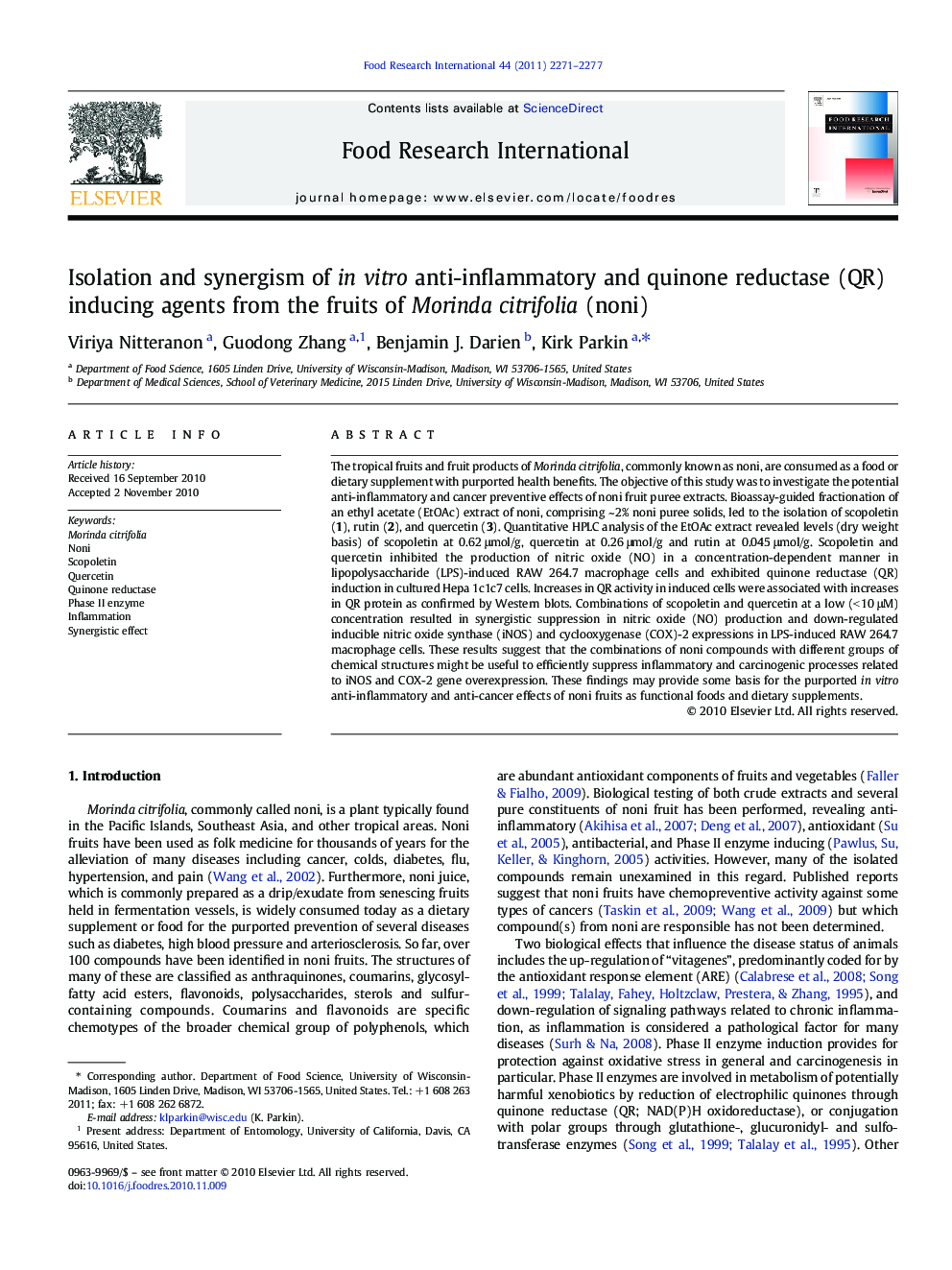| Article ID | Journal | Published Year | Pages | File Type |
|---|---|---|---|---|
| 6399658 | Food Research International | 2011 | 7 Pages |
The tropical fruits and fruit products of Morinda citrifolia, commonly known as noni, are consumed as a food or dietary supplement with purported health benefits. The objective of this study was to investigate the potential anti-inflammatory and cancer preventive effects of noni fruit puree extracts. Bioassay-guided fractionation of an ethyl acetate (EtOAc) extract of noni, comprising ~ 2% noni puree solids, led to the isolation of scopoletin (1), rutin (2), and quercetin (3). Quantitative HPLC analysis of the EtOAc extract revealed levels (dry weight basis) of scopoletin at 0.62 μmol/g, quercetin at 0.26 μmol/g and rutin at 0.045 μmol/g. Scopoletin and quercetin inhibited the production of nitric oxide (NO) in a concentration-dependent manner in lipopolysaccharide (LPS)-induced RAW 264.7 macrophage cells and exhibited quinone reductase (QR) induction in cultured Hepa 1c1c7 cells. Increases in QR activity in induced cells were associated with increases in QR protein as confirmed by Western blots. Combinations of scopoletin and quercetin at a low (< 10 μM) concentration resulted in synergistic suppression in nitric oxide (NO) production and down-regulated inducible nitric oxide synthase (iNOS) and cyclooxygenase (COX)-2 expressions in LPS-induced RAW 264.7 macrophage cells. These results suggest that the combinations of noni compounds with different groups of chemical structures might be useful to efficiently suppress inflammatory and carcinogenic processes related to iNOS and COX-2 gene overexpression. These findings may provide some basis for the purported in vitro anti-inflammatory and anti-cancer effects of noni fruits as functional foods and dietary supplements.
